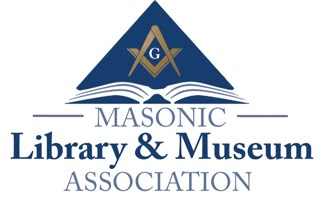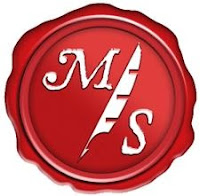I meant to post this a week ago, but it’s been busy and, frankly, social media renders Magpie coverage of Masonic Week redundant. I mean, during last Saturday’s AMD Grand Council Annual Communication, Barry was tweeting and I was Faceypaging progress of the meeting in real time. And then came tons of everyone’s photos. So this edition of The Magpie Mason is brief—I attended only several events anyway—and it is light on photography. There were No Photography signs posted around the meeting room but, unknown to me, they referred to the degree conferrals and not to the business meetings. So I inadvertently denied you my customary lens work, capturing the scenes of the same ten guys appointing each other to the officer lines.
My first Masonic Week (called AMD Weekend back then) was 2002, and this weekend, like that one, was blessed with unseasonably warm weather for the dead of winter. I wistfully recall sitting at the bar in the Hotel Washington’s lobby, enjoying a pint and a cigar, writing postcards to the brethren back at lodge, and noticing the tourists outside were wearing shorts and T-shirts. The temperature reached as high as 61 degrees this time. But no smoking anything anywhere in any hotel these days, just to illustrate how far our society has collapsed in only two decades.
I reminisced with Rashied for a few minutes about those old times and about all the friends who we don’t see anymore. Janet, who organized the annual luncheon at Old Ebbitt Grill; Scott, who played his bagpipes; and so many more Masonic Light members, some who have passed on, or no longer make the trip.
Heather Calloway was there, allegedly. I’m told she was representing Indiana University’s Center for Fraternal Collections and Research, supposedly. I’m doubtful because I staggered around the atrium, where stood everybody’s display tables, repeatedly, but didn’t see her. I probably need some kind of cognitive testing.
I didn’t even get a chance to shake Mark Tabbert’s hand. Just a fast wave. Mark’s book, A Deserving Brother, is due out this month. But I did get to meet Scott Schwartzberg after all these years.
It was a great Masonic Week thanks, in part, to the absence of a few of the usual groups that still were skittish over the pandemic. No offense, but without Athelstan and Knight Templar Priests, there was room on the schedule for degree work open to AMD brethren. What a concept.
The Masonic Society
Attendance this Masonic Week reached an all time high (at least as records and memories go), with about 430 registered. So it was exciting to see a record high 112 signed up for the anchor event of the weekend: the Masonic Society’s annual dinner. Because the pandemic pre-empted last year’s Masonic Week, this was our thirteenth, instead of fourteenth, meeting, and it felt good to be back.
Having been awake for twenty-two hours by the time we entered the banquet room, an endodontic job, sans anesthesia, would have been fine by me, but this was a true pleasure and a high note on which to conclude my term as president.
The new leadership team:
President Oscar Alleyne
First Vice President Greg Knott
Second Vice President Mark Robbins
Our seven-member Board of Directors has been reorganized with Mark joining the officers and John Bizzack retiring (he’s a new VP at Philalethes now). We have added Kevin Wardally of the MW Prince Hall Grand Lodge of New York, and Mason Russell of the Grand Lodge of Massachusetts. Coincidentally, both are grand treasurers of their respective grand lodges.
And I also had the honor of announcing two new Masonic Society Fellows: William Maurer and Michael Moran. Bill has been published in the pages of The Journal of the Masonic Society, is a valued historian of early America, and is a long-serving trustee of the Livingston Library here in New York. Mike is the book reviews editor of The Journal. He also is central to Masonic education at home in the Grand Lodge of Pennsylvania. We’re lucky to have so much talent in the family.
After a savory meal of roast beef and winter vegetables, it was time for our speaker. Chris Ruli was the grand historian and librarian of the Grand Lodge of the District of Columbia (on sabbatical now to work on another project) who has been studying Freemasonry’s historic activities in the Federal City for many years. He presented us “Masonic Myth of Our Nation’s Capital,” a discussion of some of his research that is intended to dispel the frivolous tales we sometimes hear about the Craft’s role in building Washington, D.C.
Chris told us of the persons, places, and things involved in how the District took shape with Masons participating, from the placement of the Boundary Stones that marked the city’s borders in 1791, to the construction of the Executive Mansion in 1792, to the cornerstone ceremony at the Capitol in 1793, with a lot more around town and into the next century too, including recovery from the arson of the War of 1812, and up to the Lincoln years. (I resisted the temptation to say that very day, February 11, was the anniversary of the start of the surveying process in 1791 that established the District’s boundaries.)
He exhibited not only command of his subject, but also command of his audience. You had to see it! I’m not enthusiastic about video recording our doings, but I’m sorry we didn’t preserve this lecture. It was a performance, and it was praised throughout the weekend at the hotel and for days after on social media. Chris has an uncommon gift for oratory, engaging listeners with humor to make a fascinating story doubly memorable. Not having the speaking skill or that confidence myself, I am really impressed and am in agreement with all who said this was one of the top Masonic talks I’ve seen.
The Q&A took us beyond the hour we were entitled to have the room, so we broke it up reluctantly. I really had to get some sleep anyway. But before our Friday night dinner, I attended the Blue Friars and the Nine Muses.
The Society
of Blue Friars
The Society of Blue Friars is a small Masonic institution that honors authors with membership in its select ranks. This year Adam Kendall of California became Blue Friar 111. He is a member of Quatuor Coronati Lodge 2076 and is editor of The Plumbline. Adam presented his “The Scandals and Secret Rites of Benjamin Hyam,” found in QC2076’s Freemasonry on the Frontier anthology. It’s a story as wild as the Wild West and as confounding as any you’ll find in Masonic history.
 |
| Adam, Balvin, and David. |
I encourage you to seek the several videos on YouTube of Adam’s previous tellings of the tale.
Council of Nine Muses 13
Then, at the meeting of the Allied Masonic Degrees’ Council of Nine Muses 13, James Winzenreid of West Virginia was seated, becoming both the fiftieth member in the elite council’s history and the warm body needed that afternoon to achieve a quorum. He succeeds Tom Jackson of Pennsylvania who died last year.
Tom’s death added another dimension to Masonic Week; he was eulogized repeatedly and extensively in multiple meetings. To hear different summations of his eighty-seven years is to wonder where one’s own life is going. His too numerous feats in Freemasonry comprise only a subplot in a life that couldn’t have been more productive without elongating the weeks and adding more months. Successes followed successes in his personal, professional, academic, and civic lives. Did you know he was a weightlifting champion as a young man in his early twenties?
Grand College of Rites
After about ten hours of deep sleep, it was time for the Grand College of Rites. I haven’t attended one of our meetings in several years, mostly because of repeated schedule changes. I think Saturday morning is a good time for it.
A lot of news from this meeting. Our new Grand Chancellor is David Kussman of California. If the name rings a bell, he is the Knight Templar who was illegally removed from his elected office as deputy grand master of the KT Grand Encampment by the grand master of the Grand Encampment—and is that guy gonna get his comeuppance next month! Read the Dummies blog for that story.
Joining the officer line as the grand seneschal is Clyde Schoolfield of Oklahoma. Clyde is grand secretary of the AMD. Jerry Klein retired as our grand registrar, and has been succeeded by Christopher Gamblin of Indiana. Duane Vaught exited the grand chancellor’s chair and took over as grand treasurer.
Arturo de Hoyos, grand archivist, was absent, tending to family needs, so there was no report on the upcoming edition of Collectanea, but we know it will be a continuation of the 1807 Cerneau Scottish Rite rituals. In the meantime, however, a bonus Collectanea has been mailed to the membership. Forget what I said about the Masonic Book Club possibly publishing Burlesque Degrees. The text of humorous, if hokey, rituals from the Golden Age of Fraternalism now is among the GCR bibliography.
Ark and Dove Degree
Somewhere in the weekend I, and maybe about a hundred others, received the Ark and Dove Degree. I have to hit the books and learn about this one; I’m not sure I’ve even heard of it before. From its name you’d connect it with Royal Ark Mariner, but it is different. Whether it’s derivative of, or adjunct to, R.A.M. I don’t know. It imparts a lesson in temperance, particularly with food and drink. I can’t decide if that message is ironic for Masonic Week, or if it is especially needed there, but it is a thoughtful brief degree. The ritualists performed well, and it was appreciatively received.
(You ever notice the word “peradventure” is used in a couple of our degrees?)
Grand Council
of Allied Masonic Degrees
And speaking of the AMD, Grand Master Mohamad Yatim enjoyed a dynamic year in office. The poor man was installed in quarantine conditions and via Zoom last February, but that humble start sparked a ceaseless tornado of activity that improved AMD at home and was felt abroad from the Philippines to the Congo. The accomplishments literally are too numerous to list here, so I’ll have to refer AMD members to the first four issues of the Allied Times newsletter. I will point out though how Prince Hall brethren now are able to be invited into AMD councils.
The Marvin E. Fowler Award was presented to Moises Gomez in thanks for his expert stewardship of the planning and execution of Masonic Week each year. To be clear, there is a committee. Its members get us attendees signed in, paid up, credentialed, inspected, injected, detected, and rejected—but it is Moises who is the omnipresent force in the hotel before we arrive, while we run amok, and after we’re gone. He checks the meetings to ensure the hotel is performing correctly. He provides his personal equipment so Chris Ruli can screen his slides during his presentation. He visits the brother who became ill and needed to be hospitalized. Moises is the Indispensable Man.
Aaron Shoemaker of Missouri is our new grand master. I think it’s reasonable to expect a similarly productive year for him. One of his first acts was to make Moises the grand superintendent for New Jersey.
So this, the 130th Annual Communication of the Grand Council of Allied Masonic Degrees, was the final meeting of the last Masonic Week I plan to attend, and even I was part of the ceremonies. My thanks to Mohamad for recognizing my work on the newsletter with a handsome plaque. Editing Allied Times last year was the least I could do—and let it never be said I don’t do the least I can do!

























































































